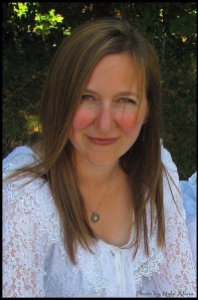Does a blog have a birthday or an anniversary? Following the communicatrix and others, I’ll go with anniversary. In this case, it’s the first anniversary of ‘Transcending’, a significant milestone. So what did I start out to do on May 2 last year? After much research, reading and thinking, I decided that ‘Transcending’ was my theme. And it still is. Sometimes I wonder, for sure, and I still need to do more work to build this theme and this platform; but I know that transcending is it, that it is relevant to so many people and that I need to keep mining it, milking it and keep that vein of possible riches flowing.
It’s been a huge battle at times. I’ve managed nearly a post a week on average and given the demands of my day job, seven weeks’ overseas travel, my daughter’s final year of school, a couple of operations and other dramas, that’s not so bad. I could do better, but it’s an achievement, all taken into account. The main thing is that I kept at it: writing, researching, tuning in and reading to others, synthesising and reflecting.
And as the communicatrix says so eloquently in her sixth anniversary post, it’s really all about writing:
What I’m trying to say, albeit rather clumsily, is that a lot of the time, the reason to write is just that—to write. You can write to promote yourself or write to make money or even write to find yourself but ultimately, you write to write. To be able to keep on writing. To be able to keep on getting better at writing. To be able, god willing, to write long enough that you write well enough to actually say something that will live on after you are no longer there to write.
But even if you don’t, even nobody reads your writing while you are alive and all your writing dies with you, if you are a writer (and maybe even if you are not), you are the better for having written.
Now, write.
That’s an important motivator for me: writing itself, the value of it, the process and the product. It’s what my working life has also been about. I’ve been happy with what I’ve written here and how I’ve found a voice here over the past year. It’s a voice that can do much more and stretch itself out a little now. I do know that the feeling of having written here, once I get through the resistance and work it through, is like birds soaring in the clearest of skies. One of my earliest posts, ‘The value of howling into the wind‘ captures this in a way I am proud of and still has the most hits of all my posts so clearly strikes a chord.
It is also the second anniversary of my father’s death today. His death and my brother’s tragic death in November 2007 are key motivators for this theme: one transcended in many ways in a sometimes difficult life and the other, also an incredible achiever, did not make it through one night. It is for these reasons, and the grief that goes with them, that transcending has become a theme in my life.
It’s why I write about transcending and resilience: working through, rising above, moving beyond, climbing across whatever is difficult or challenging. It’s not so I can look down on anyone else or feel superior in any way; that connotation sometimes worries me. It’s so that I, and you through reading and engaging, can work through, create, connect, be productive, strategise and achieve success in whatever is important: writing, grief, work, blogging, creativity, family contexts, planning and progress. Cut through and move on to the next challenge with the support of all those bloggers and other writers and creatives out there who are similarly focused on their life’s work and next project.
So what did I say I was going to do here 12 months ago? Here’s my first post:
‘Transcending’ is an exploration of the ways that we rise, overcome, climb across and pass beyond.
It celebrates the extraordinary power of the ordinary self in creativity, writing, in love, in the workplace and in our family contexts, such as our family history and what it means. It is about resilience, grief, love, loss, longing and the resonating shapes and forms we make to deal with this and move on and through. It’s about constructive approaches at work – strategies that cut through, synthesise and provide solutions. And it’s about images, structures, texts and ways of thinking that makes this possible.
This theme resonates and connects for me in all spheres of life and I hope connects and resonates with you also.
Join me in this journey as it unfolds. Some of the areas I hope to explore are:
- writing as a way of transcending and moving through
- my own creative journey as a writer
- poetry and the shapes and structures we find to manage our emotions
- music and images as vehicles for experiencing and managing feelings
- family history and its stories of how we connect and experience life
- constructive leadership behaviours and strategies
- reading and reflections on transcending
- connections with other writers and thinkers on this theme in all its guises
Reflecting back, it’s still spot on and it’s what I have focussed on. I can do more to hone my platform and that’s a challenge I welcome. I’ve revamped my page recently and it’s whiter and brighter: a new theme, Linen, to usher in a new year. Like my theme, there’s more to learn with the technology but I’ve also loved that learning over the year: learning wordpress, flickr, managing RSS readers, linking, taking photos and everything else that goes with a blog.
It’s been a wonderful journey this past year and I thank all those who have been here with me and visited. I also thank my inspirational guides and leaders in this online space, my seven stars that continue to be guides and fellow travellers in so many ways. I look forward to the next year with a sense of brightness and light. I hope you will join me here also in the shedding of that light.
![]()








